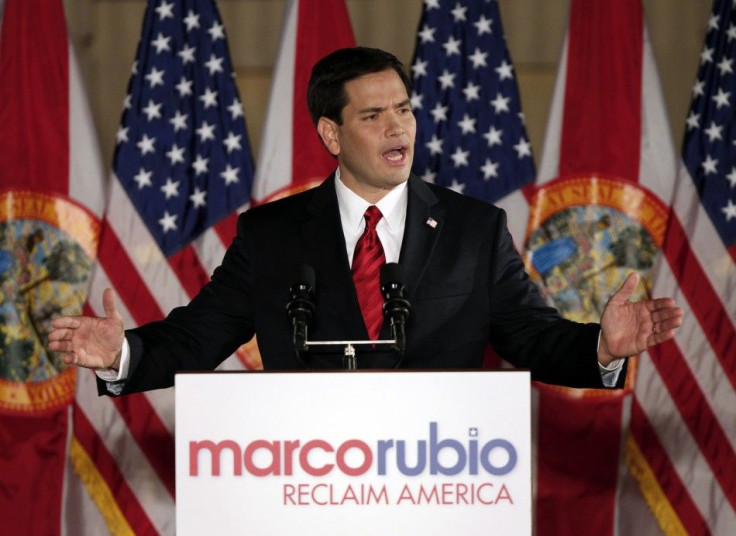Before Vote, Rubio Defends Immigration Reform In Soaring Senate Floor Speech

Just a few hours before the Senate will vote on a comprehensive immigration reform bill six months in the making, Republican Sen. Marco Rubio of Florida made no mention of the politics and policy discussions where he has been at the center since the reform effort got under way. Instead, he defended reform in a soaring speech about the promise of coming to the United States and the moral imperative to welcome immigrants.
“Here, in America, generations of unfulfilled dreams will finally come to pass,” Rubio said on the Senate floor Thursday, according to prepared remarks. “I support this reform. Not just because I believe in immigrants, but because I believe in America even more.”
Using his parent’s immigration story and quotes from Scripture, Rubio’s made the case for reform by appealing to the moral, “Judeo-Christian” commitment to helping the downtrodden while also arguing that America thrives rather than suffers by welcoming immigrants. The bill itself was hardly mentioned. Rubio began by recalling his own parents’ decision to come from Cuba in 1956. “With each passing year, this country became their own,” Rubio said. “Long before they ever became citizens, in their hearts they had already become Americans.” He quoted the words on the Statue of Liberty, “Give me your tired, your poor, Your huddled masses yearning to breathe free,” he said.
A member of the “Gang of Eight” senators that crafted the bill, Rubio has played an important, high-profile and complex role in the push for immigration reform. He is touted as a leader of the Republican Party, and the bill’s success is seen as important to Rubio’s presidential prospects in 2016. The bill is expected to pass the Senate around 4 p.m. Thursday – and that will be a significant victory for Rubio.
But the past six months haven't been smooth sailing for Rubio. Backing reform has required a delicate balancing act between crafting compromise legislation and placating the demands of the conservative wing of his party – both fellow senators and right-wing media. He has threatened to pull out of negotiations in both February and March when conservatives were unhappy, then went on to give the bill his full-throated support when the Gang of Eight released the bill. When prospects for passage appeared to be dimming in early June, Rubio suggested that his own bill wasn’t good enough. He got political cover to support the bill fully, as well as the support of nearly a dozen Republican colleagues, when Republicans Sens. Bob Corker of Tennessee and John Hoeven of North Dakota negotiated a border security amendment that broke an impasse and cleared the way for the bill’s approval.
But Rubio’s work is far from over. He has lost some support among conservative groups who oppose the bill. After today, he will have voted for a reform effort that Republicans in the House of Representatives might kill. Now that he's won over enough Senate Republicans, he will likely to continue to lobby Republicans on the other side of the Capitol to support reform.
© Copyright IBTimes 2024. All rights reserved.












